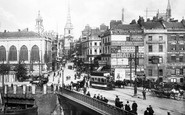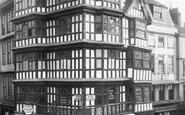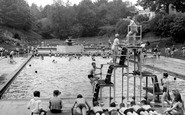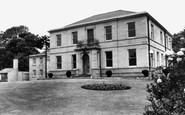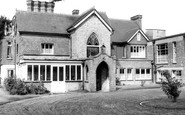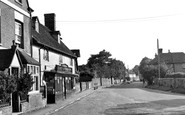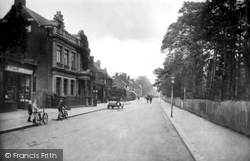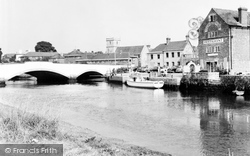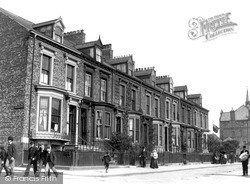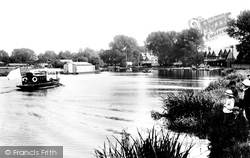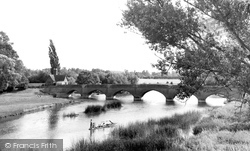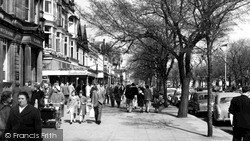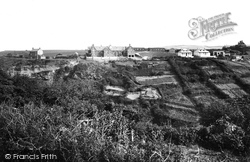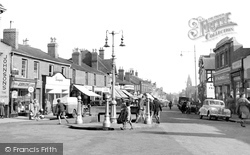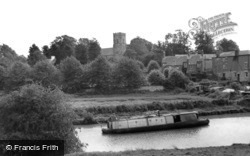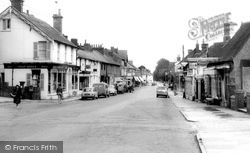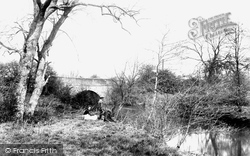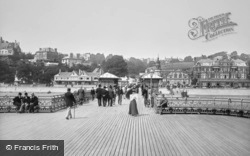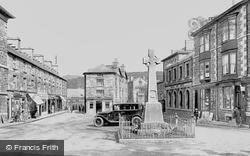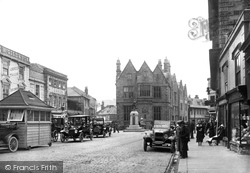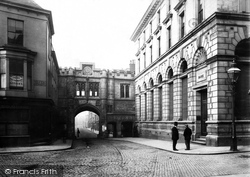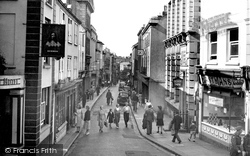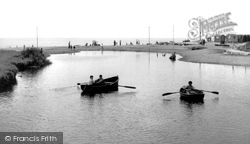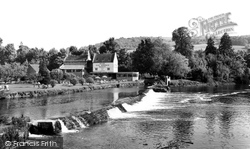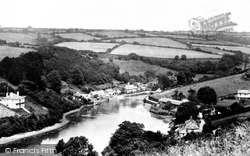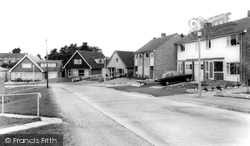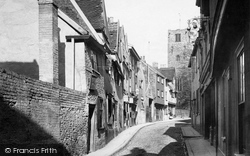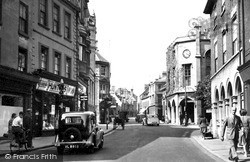Places
3 places found.
Those places high-lighted have photos. All locations may have maps, books and memories.
Photos
63 photos found. Showing results 721 to 63.
Maps
12 maps found.
Books
1 books found. Showing results 865 to 1.
Memories
7,562 memories found. Showing results 361 to 370.
Great Easton
I lived the first 22 years of my life in Great Easton amd it is a place that will remain with me forever. My family are recorded as being in the parish for 400 years and my late father was the last one to remain, ...Read more
A memory of Great Easton by
Bombing Raids In 1940
Bristol's premier shopping centre was turned into a wasteland of burned out buildings after major bombing raids in 1940, during the Second World War. Bridge Street Summary Bridge Street ran from High Street, rising up a ...Read more
A memory of Bristol by
Dutch House
The Dutch House - this 17th century building once stood on the corner of Wine Street. It was reduced to a charred skeleton during the Second World War and for safety's sake it had to be pulled down. The Dutch House was Bristol's ...Read more
A memory of Bristol by
'up The Baths'
I remember being 'taught to swim' here, by the teachers at the board school. We were stood at the poolside, only up to the black line, then summarily being to "Jump!". If that failed, we were helped in by the boot of 'Danny' Davis or ...Read more
A memory of Brynmawr in 1965 by
Purston Park
My father worked at the town hall for many years. His office was at the back looking down on to the park so I could go and wave at him through the window! I was back in Featherstone at the weekend. The park looks so different now, ...Read more
A memory of Featherstone in 1963 by
Denham Court
I was placed in Denham Court on 20th February 1953 at the age of 12 years (just five days before my thirteenth birthday, which I recall was not even acknowledged by anyone) when it was a Children's Home. The Matron and her husband were ...Read more
A memory of Denham in 1953 by
Copthorne Convent
My name is Maggie Wilkinson. My mum Elizabeth Pilkington lived at Copthorne Convent, then it was called Bank Farm House, she was married from there on 6th June 1942. My parents were married at St John's church. Mum's stepfather ...Read more
A memory of Copthorne in 1942 by
The Village Of Fond Childhood Memories (1955 )
I would have been three years old back then, living, as we did, at 77 High Street with my grandparents (the Dentons). Harry (my grandfather) used to keep bees and was regularly praised for his ...Read more
A memory of Sutton Courtenay in 1955 by
The Red Lion Inn Thursley
I lived in The Red Lion Inn, Thursley (Bridle Cottage) from the day I was born for approximately 22 years. I was born in June 1961 and I am the oldest child of four. I lived with my parents and grandparents. My grandfather, ...Read more
A memory of Thursley in 1961 by
Christ Church
Back in 1965 we moved into 6 Tregaron Avenue, just off Crouch Hill. I was 3 years old and there were six of us, Mum and Dad, my sister Jill and our lovely Nan and Auntie Peggy. One of my earliest and fondest memories is of on Sunday ...Read more
A memory of Crouch End in 1965 by
Captions
2,471 captions found. Showing results 865 to 888.
Motorised transport is in the process of taking over from more traditional methods, while the three small boys on the left have to make do with two bikes between them!
This view looks north-westwards from the south bank to the 1927-built South Bridge (left) which replaced a graceful five- arch Norman bridge.
Laygate Lane is one of a number of sturdy Victorian terraces in South Shields; many of them were built speculatively by developers as the town expanded thanks to the coal and alkali industries.
In Cheap Street is the Conduit, originally situated in the cloisters of Sherborne Abbey and used as a washing house, or lavatorium.
An interesting view from the south bank of the Thames looking east, before Christchurch Meadows on the left were made into a riverside park, and, more significantly, before Reading Bridge was built
The six-arched bridge, designed by Sir George Gilbert Scott, was built in 1864 using bricks made locally. During the same period he also rebuilt the church, which had become derelict.
Even though there are no leaves on the trees, Lord Street is still busy; as at Blackpool, trippers visit all year round.
The area at the top of Staithes is known as Bank Top and here, in 1929, we see two recently- completed bay-fronted detached bungalows (right of view) which have been carefully positioned to take full
The High Street sports a branch of F W Woolworth, and the local branch of the National Provincial Bank is housed in half-timbered style premises.
In the foreground is the Grand Union Canal, with the houses of Blisworth and the 15th-century tower of the church to be seen on the opposite bank.
Henfield is a long, straggling village a mile or so to the east of the River Adur.
The River Mole forms the county boundary here, south-west of the church, so the right bank in the view is in Sussex. This is Long Bridge, seen from Church Meadow, now a more manicured space.
A fire on August Bank Holiday Monday 1931 destroyed a small seaward end pavilion, erected in 1907, along with the mid-length shelters and shops.
The town's arcaded Market House of 1870 stands in the Square. The local dark building stone has given Dolgellau much of its character.
Cornwall's cathedral city is at the centre of a mining district and sits comfortably in a broad valley, at the junction of the rivers Kenwyn and Allen.
Through Stone Bow we look back across the setts to its rear, with the High Street stretching away into the distance through the archway.
Always bustling with shoppers, Falmouth's main thoroughfare turns to the right here at the church to continue along Arwenack Street.
The pebble beach beside Lyme Bay acts as a dam at Charmouth, and prevents the River Char from having a conventional estuary.
The mill is actially on the Bathampton or south bank of the Avon, beyond the toll bridge. In this view it has been converted into the Weir Tea Garden Hotel, and the meadow turned into a tea lawn.
Newton Ferrers and Noss Mayo, 'Newton and Noss' to all locals, line the opposite banks of the Yealm estuary.
A wide range of architectural periods is represented in Astwood Bank, though Victorian buildings are particularly numerous. The 1960s brought a number of new developments, of which this is typical.
All Saints' Church in the distance survived bombing and post-war clearance, along with a thatched pub, the quaintly-named Barking Dickey, which later became a greengrocer and then a bank.
All Saints' Church in the distance survived bombing and post-war clearance, along with a thatched pub, the quaintly-named Barking Dickey, which later became a greengrocer and then a bank.
At the end of South Gate is the Market Place, which has on its east side one of Lincolnshire's finest churches.
Places (3)
Photos (63)
Memories (7562)
Books (1)
Maps (12)



